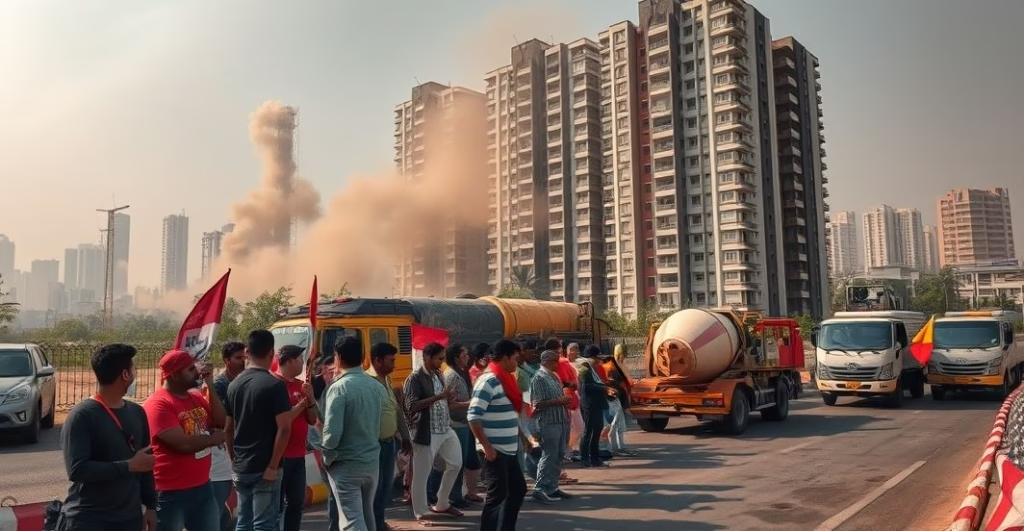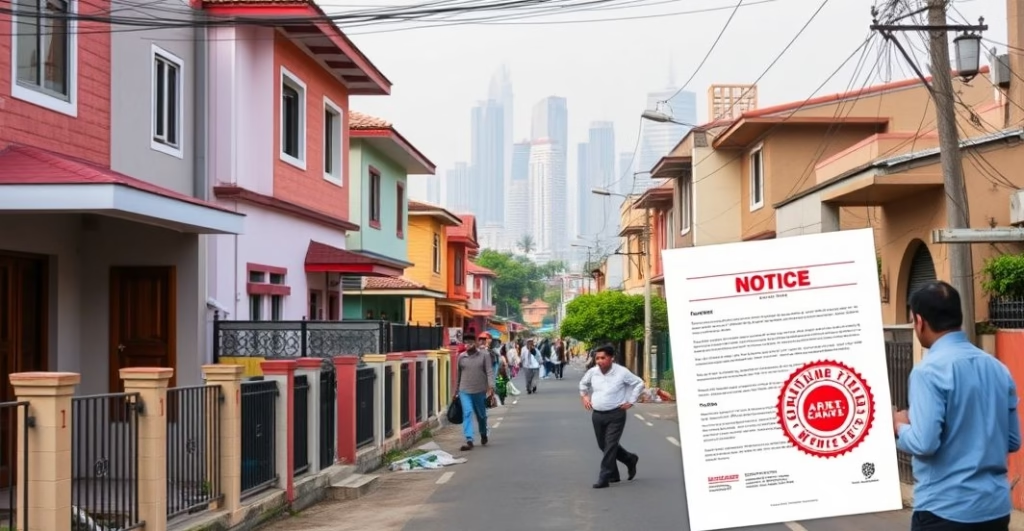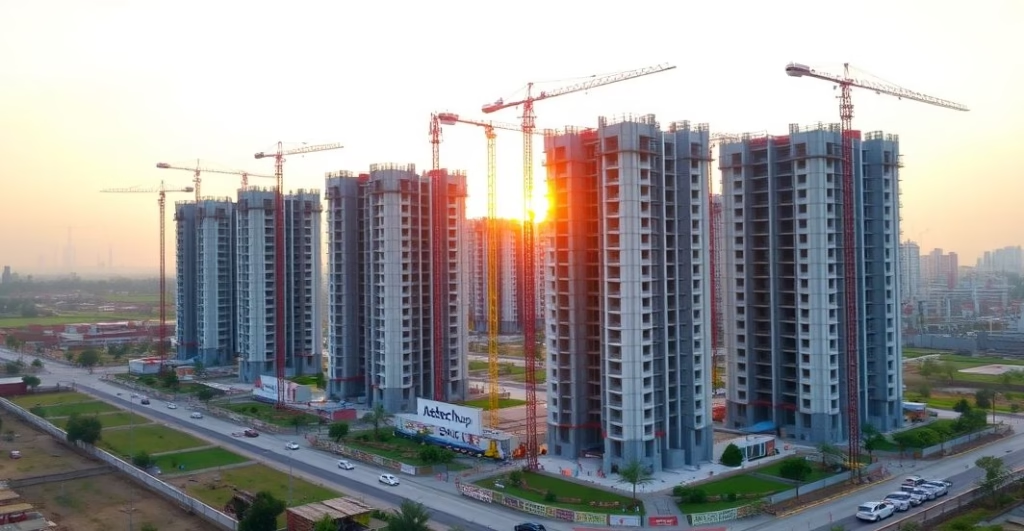Auto-published by Growwh – a smarter way to scale content and marketing. Want to know more? Chat with us.
Noida residents at Jaypee Greens protest a nearby RMC plant, citing pollution, blocked roads and health risks; authorities issue notices and prepare action.
Residents raise alarm over RMC plant, road blockage and pollution
Residents of Jaypee Greens Kensington Park Apartments in Sector 133, Noida, are staging protests against a nearby ready-mix concrete (RMC) plant that they say is causing pollution, health hazards and encroaching on a two-way road outside their community. The dispute has reignited concerns about approvals, encroachment and the administrative process for removing unlawful setups in fast-developing urban corridors.
What happened: timeline and current status
According to residents, work at the plant began in January and the operation was shut down by the end of February after protests and a notice from the Uttar Pradesh Pollution Control Board (UPPCB). Residents say the builder management began encroaching on the road again from August 26, and as of recently the plant has reportedly barricaded the two-way road, effectively blocking access directly in front of the society.
Health and pollution concerns
Locals report a noticeable decline in air quality since the plant started operations. Average Air Quality Index (AQI) readings in the vicinity reportedly reached around 189 during the past week, a level considered “moderate” but concerning when dust and construction-related emissions persist near a residential complex. Residents cite respiratory issues, dust deposition on balconies and noise from plant activity as immediate health and quality-of-life concerns.
Administrative and legal angle
The Noida Authority has clarified that any industrial setup needs proper land allocation and statutory permissions before approaching UPPCB. In cases without proper land records and permissions, the setup is treated as encroachment and may be issued a 15-day notice before removal. This protocol has become central to residents’ demands for a swift resolution.
Builder response and resident claims
Representatives from the builder have asserted compliance with norms, stating that they are a responsible company adhering to applicable regulations. Residents, however, maintain that the plant lacks approvals from the Noida Authority and the pollution department, and that repeated complaints have yet to produce a lasting solution.
How this fits into the broader Noida property landscape
Incidents like the Kensington Park dispute appear alongside other contentious property and encroachment matters in the region. For readers tracking similar cases, there are notable related developments: Noida residents fight demolition notices for home extensions highlights how residents and authorities clash over permissions and home alterations; the resolution of long-running land disputes is covered in Wave Mega City Centre: decade-long land row resolved; and lessons from buyer frauds and scams can be found in Noida property scam Alphathum fraud and buyer lessons. Together these stories illustrate the range of regulatory, legal and consumer-protection issues that residents and buyers face in the city.
Practical steps residents can take
- Document the issue: Take dated photos and videos of the plant, road blockage and dust deposition. Keep correspondence records with local authorities.
- Monitor air quality: Use local AQI apps or government monitors and record readings that coincide with plant activity.
- File formal complaints: Lodge complaints with the Noida Authority and UPPCB and note the complaint numbers. Escalate through RTI if responses are delayed.
- Coordinate with resident associations: Collective complaints and public petitions carry more weight than isolated reports.
- Seek legal advice: If encroachment continues despite notices, legal counsel can advise on injunctions and remedies.
What to expect next
Procedurally, if the Noida Authority identifies the plant as an encroachment it may issue notices and initiate removal after a statutory period. Enforcement often involves coordination with UPPCB for pollution assessments and with civic agencies for road restoration. The dispute could end with either enforcement action, legal challenges by the builder, or negotiated mitigation measures such as relocation, stricter pollution controls, and restoration of the road.
Key takeaways
This conflict highlights the importance of transparent land permissions, active pollution monitoring and timely administrative action. Residents can protect health and access rights by documenting impacts, coordinating with authorities and learning from similar local disputes. Persistent follow-up and collective action are frequently necessary to resolve encroachment and pollution issues in rapidly urbanising areas.
Stay informed and document every step if you live near construction or industrial activity—timely records and formal complaints are the foundations for enforcement and legal recourse.
This article was auto-generated as part of a smart content campaign powered by Growwh.com. Curious how we do it? Chat with us to learn more about our content automation systems.


